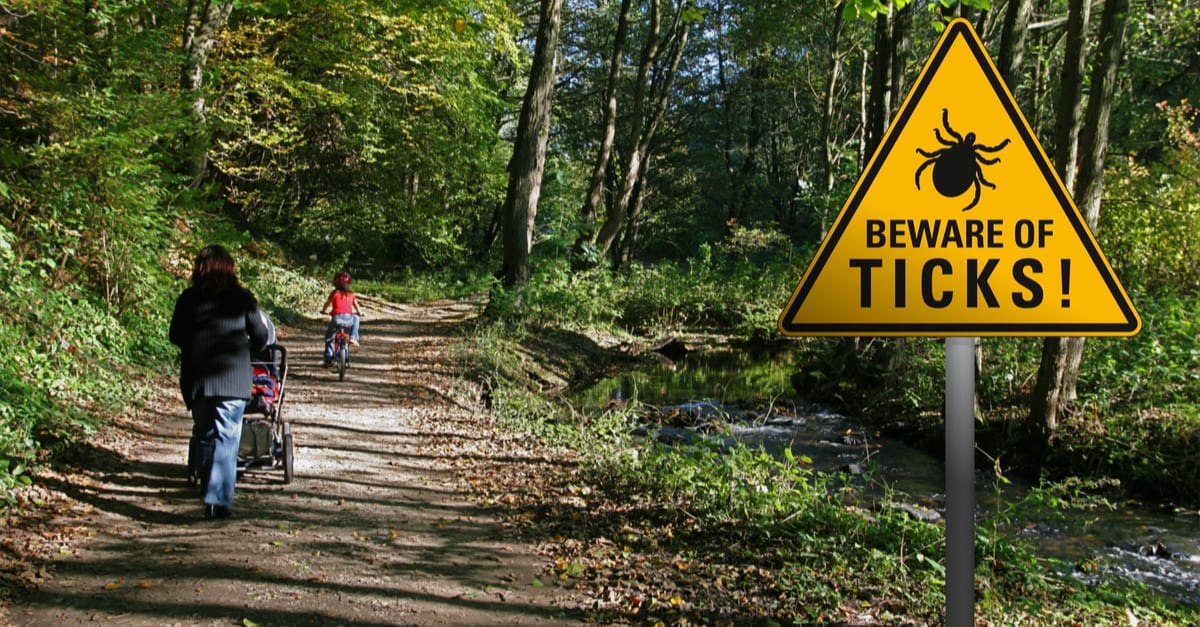New Jersey has become famous as an area of the country that is well-known for Lyme disease. However, a new tick-borne disease is making the rounds across the state. Scientists and health officials are worried about the new disease, called Powassan virus. They say this new tick disease could eventually affect more people than Lyme disease.
The Powassan Virus
The Powassan virus in N.J. is spread the same way that Lyme disease spreads. People get Powassan from a tick bite. Named after Powassan, Ontario, the first person to die of it was a young boy who lived in the town. While ticks spread both Lyme and Powassan, Powassan is the only flavivirus found in the United States. Several other viruses in the flavivirus family are deadly: Zika, yellow fever, West Nile, tick-borne encephalitis, and dengue fever.
Symptoms of Powassan
The symptoms of Powassan include fever, severe headache, and the trademark Powassan virus rash. This is usually close to the bite area. Other symptoms include neurological symptoms, such as body weakness and confusion, loss of coordination, speech and memory problems, and seizures. If doctors don’t catch the disease early, patients risk permanent brain damage and even death. At the moment, there’s no cure for Powassan. There is also no treatment other than supportive care.
The Problem with Powassan
Lyme disease can be deadly, but, if caught early, it’s treatable with antibiotics. Lyme disease only becomes a serious threat to human health if it goes untreated. However, because Powassan is a virus, it can be more difficult to treat. Like Lyme disease, if a human doesn’t know a tick bit him or her, the bite might go undetected. Then, doctors must guess what disease the person has.
Anaplasmosis is another disease spread by ticks. Like Lyme disease, it’s a bacterial disease spread through a tick bite. Doctors can treat it with antibiotics, most commonly doxycycline. The symptoms of anaplasmosis are very similar to those of Powassan: fever, severe headaches, body aches, and chills. However, the disease doesn’t progress with neurological symptoms.
Prevention
It appears the Powassan virus is spreading in New Jersey. The New Jersey Department of Health reported two cases so far this summer. One man died of Powassan, while the other is recovering. Since 2013, there have been 10 cases of Powassan in the state. Overall, the virus has spread to several states in the Northeast, Mid-Atlantic, and Upper Midwest, as well as Canada. Two years ago, New Jersey only had two cases of the disease. Now, the number of people infected is on the rise. The man who died of Powassan earlier this summer was 80 years old. He was apparently bitten by a tick in April. He began running a high fever in early May and began to experience seizures, as well as speech issues.
There are ways you can protect yourself from getting Powassan. First, you need to be aware that ticks are most active in New Jersey between April and September. You need to do everything you can to minimize contact with ticks. You should avoid hiking, walking or biking in brushy or bushy areas with tall grass. If you’re hiking, you need to keep to the center of the trail. Wear long sleeves, long pants, socks, boots, and a hat. This will help to keep the ticks off you. You must also repel ticks on your skin and clothes. Make sure the repellent you use has DEET or other repellents that have been effective against ticks. You can also treat your clothing and outdoor gear. There are some clothing and gear that companies have pretreated to help repel ticks.
If a tick bites you, get it checked out. Watch out for high fevers, confusion, body aches, and headaches. A blood test can determine if you have Powassan.
Let’s help you by protecting your property from ticks. Contact NJ Pest Control to see what we can do for you regarding protecting your family and pets.

